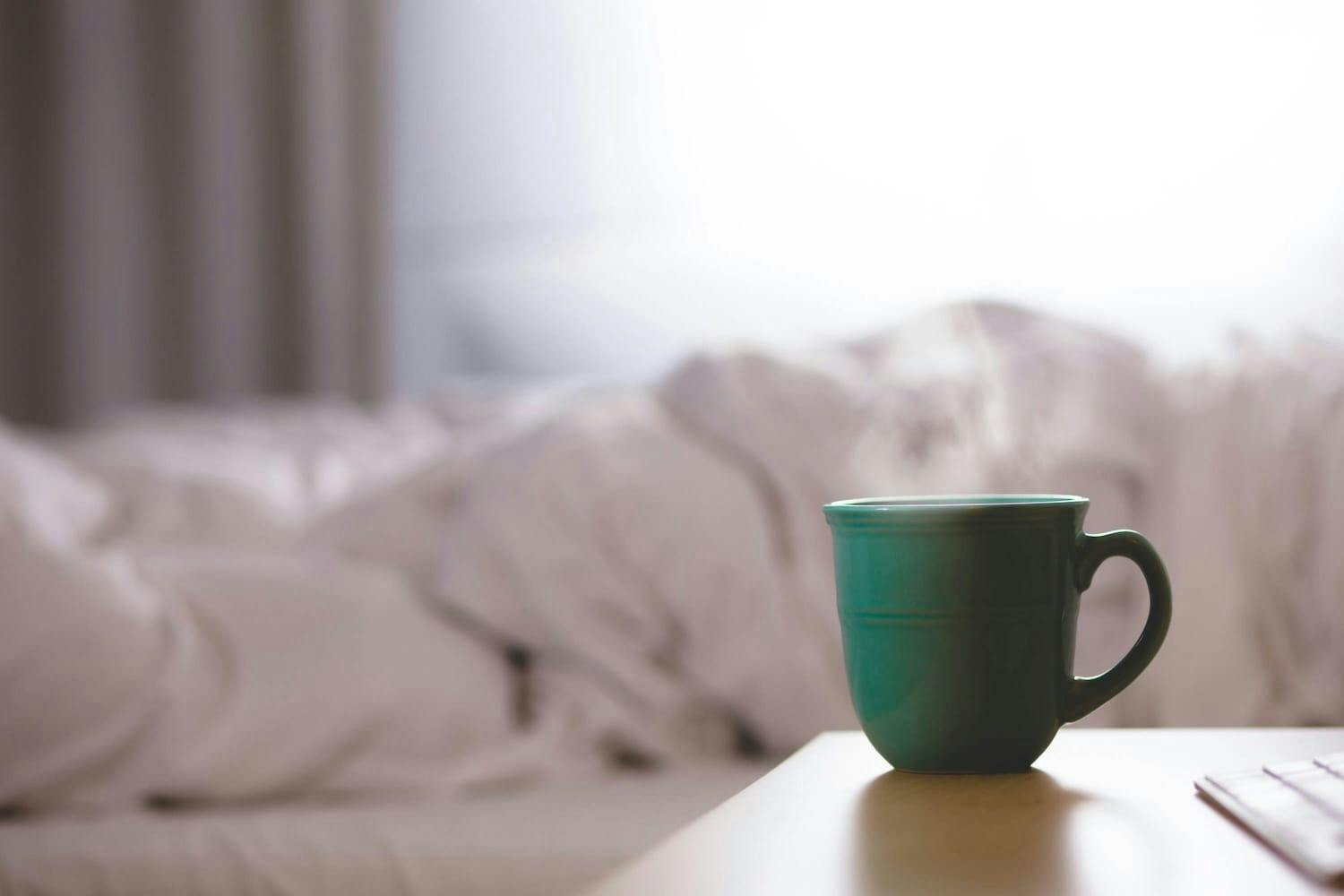
Do you find yourself tossing and turning, desperate to get a good night’s sleep, when you’re feeling under the weather? Simba and The Sleep Charity have teamed up to share some ways to get better rest when you have a cold or flu
As we approach the end of winter, the days begin to feel a little longer and, for many of us, this glimmer of spring is just what we need to get us through the remaining weeks of cold and often drizzly days. But we’re not quite out of the woods yet, as this is also the season for coughs, colds and flu.
It’s thought that we are more likely to get ill during the colder months, but it’s not uncommon for us to develop colds and coughs in the summer either. Why? Well, according to Patient, this might be due to a phenomenon known as ‘weather change sickness.’ This is the idea that, whilst the weather doesn’t cause illness itself, the change in temperature and humidity can put stress on our bodies and weaken our immune systems – making us more vulnerable to viruses.
Whatever time of year it is, if you’re feeling under the weather, it’s really important to get good quality sleep to support your body in its recovery. Easier said than done, right?
Dry, tickly coughs and blocked noses can make breathing more difficult. What’s more, fever, chills, night sweats and aches and pains can also exacerbate poor sleep. Fortunately, sleep tech company Simba has teamed up with sleep expert, Lisa Artis from The Sleep Charity to help us get a good night’s shut-eye, even when we’re ill.
Why is sleep so important for recovery?
Sleeping when we’re sick is vital for us to start to feel better. Whilst it doesn’t cure illness in itself, getting proper rest can influence how quickly we recover. Sleep helps boost our immune system, helping us to fight off infections.
“Good sleep hygiene is even more crucial when we are sick, which means keeping the bedroom at the right temperature and humidity and reducing noise and light disturbances. You may even find yourself needing to go to bed earlier than your usual bedtime,” says Lisa.
“Napping during the day - especially later in the afternoon - can interfere with our nocturnal rhythm, however, when we are ill, it’s important to get the rest we need. Taking to bed to relax can make a real difference to the way the body copes with a heavy cold or virus.”
8 ways to improve sleep when you have a cold or flu
1. Switch up your sleeping position
Whether you’re a side sleeper, flat on your back or you go full face-plant into your pillow, making adjustments to your sleeping position can go a great way to improving your sleep quality. Side sleeping – the most popular position – can actually lead to blocked sinuses if you’re suffering from a cold. If you have a head cold or chesty cough, it’s recommended to try elevating your upper body and sleep on your back.
2. Keep the fresh air flowing
This one might seem counterintuitive, particularly if you’ve got a winter virus, but keeping a window open and allowing fresh air to flow can prevent bugs from spreading. However, it’s also important to stay warm when you’re sick, so using a HEPA air purifier can be a great alternative. These help to clean the air, whilst also keeping your bedroom between 16-18 degrees – an optimal temperature to support deep sleep.
3. Use steam
Steam inhalation can be an effective way to loosen up mucus, clear sinuses and ease congestion. A quick and easy way to do this is to fill a large bowl with boiling water, lean over, cover your head with a towel and breathe long, deep breaths through your nose and mouth. You can also add a few drops of eucalyptus oil, which contains cineole – a mucus-loosening component.
You could also try taking a (comfortably) hot shower and using aromatherapy tablets. Not only is this another way to reap the benefits of steam, but it can also help you relax before heading to bed.
4. Control your body temperature
When we’re under the weather, our body temperature can fluctuate. If you find yourself blowing hot and cold, investing in a temperature-controlling duvet can do wonders. Simba’s 3 in 1 uses heat control technology which responds to body temperature, drawing heat away to keep you cool and dry.
5. Try a weighted blanket
Weighted blankets are heavier than normal blankets and are designed to help promote calm and reduce stress and anxiety using a therapeutic technique known as deep-pressure stimulation. They can therefore be a useful sleep aid to help prevent restlessness.
6. Use a humidifier
Dehumidifiers are all the rage in winter, sold as an effective and energy-efficient way to remove excess moisture from your home, preventing dampness and cold. But, overheated, dry air in a bedroom can further irritate the throat and airways if you’re already suffering from a cold or flu. Using a humidifier or a plug-in decongestant puts moisture back into the air to help you breathe more easily. Make sure to use distilled or purified water, change it daily and keep it clean.
Most cold symptoms last around a week to 10 days, and it’s important to look after our physical, as well as mental health during this time. Remember, unless we take the time to support our recovery, it will only prolong our symptoms, so don’t try to push through. And, if your symptoms last more than three weeks, be sure to visit your healthcare provider.
Explore a range of sleep products on simbasleep.com and learn more about the importance of sleep and how to sleep better at thesleepcharity.org.uk

